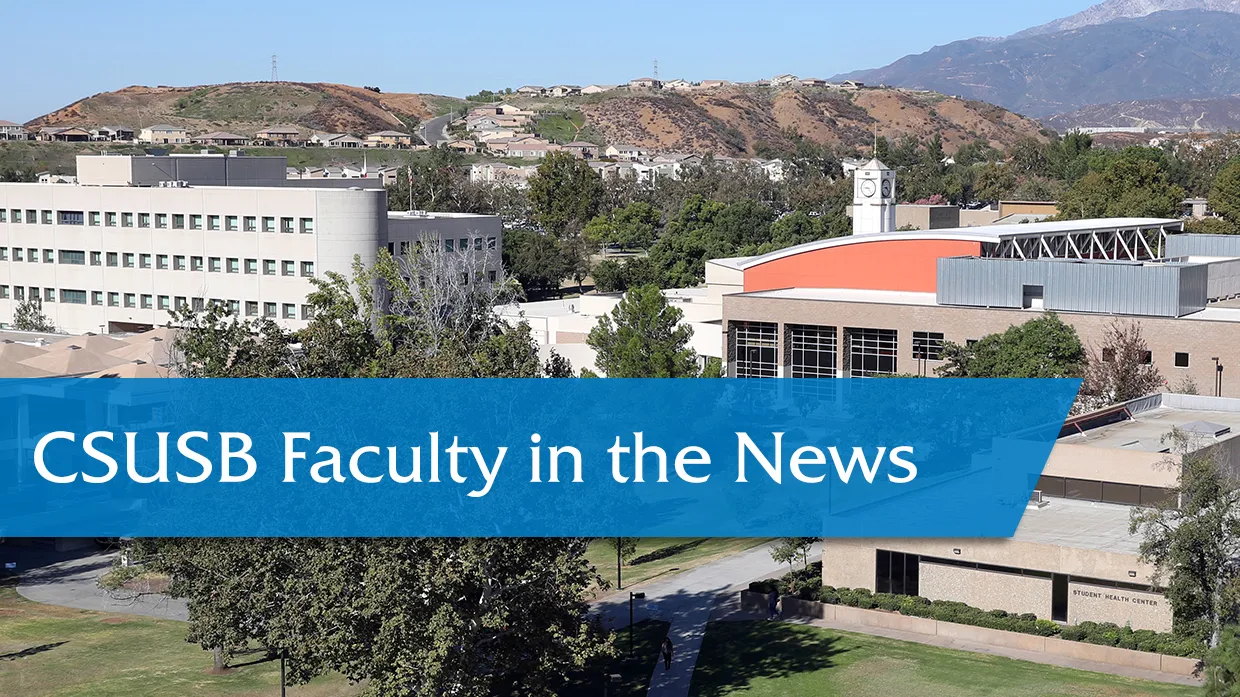NOTE: Faculty, if you are interviewed and quoted by news media, or if your work has been cited, and you have an online link to the article or video, please let us know. Contact us at news@csusb.edu.
Politicization of Congressional hearing on hate crimes and white nationalism created a ‘lost opportunity,’ CSUSB professor saysNewsweekApril 10, 2019 The politicization of Tuesday's Congressional hearings on hate crimes and white nationalism decreased the efficacy of the House committee's questioning, experts on hate crimes and extremism told Newsweek. … Witnesses brought by Republicans shifted the conversation away from white nationalism while some Democrats questioned the testimony from the Republican witnesses and reasons for their selection. 'I’m hard-pressed to think that (conservative commentator) Candace Owens reflects the most deeply knowledgeable commentator on the conservative side of the fence,' Brian Levin, the director of the Center for the Study of Hate and Extremism at CSU San Bernardino, told Newsweek. 'I think we had a lost opportunity because the extremist threat in the U.S. is evolving and quite diverse, with white nationalism being the prominent, but not only, contemporary domestic threat.' Owens said Congress should call a hearing on Antifa, a loosely organized anti-fascist group that is decried by Republicans and whose members have previously violently clashed with far-right groups. 'I don’t have an issue with people examining the threat of Antifa,' Levin told Newsweek. 'The problem is it’s a distinctly different threat that is not as mainstreamed nor as widely dissipated [as white nationalism]. Although, as we become more polarized and enter a conflictual election season, with a rise in white nationalist extremism, we will likely see a concomitant, though significantly smaller, [reaction] with respect to the violent segment Antifa.' Levin said that experts across the ideological spectrum should have been called to testify to Congress and that the country had lost a chance for committee members, government experts and social media representatives to talk about civil liberties and 'how to get on top of an increasingly evolving and fragmented extremism world.' Read the complete article at “Inviting Candace Owens to hate crimes hearing was a 'mess' and 'lost opportunity,' say experts.”
CSUSB professor says social media posts on Yuciapa mayor’s Facebook page reflective of ‘how low our social and political discourse has descended’ The Sun/Southern California News GroupApril 10, 2019 Cal State San Bernardino professor of criminal justice Brian Levin was quoted in an article about the mayor of Yucaipa apologizing for a series of social media posts attacking Muslims and undocumented immigrants, and calls for his resignation. The mayor posted an apology on his Facebook page. Levin, director of the university’s Center for the Study of Hate and Extremism, said Mayor Bobby Duncan’s Facebook posts “represented white nationalism and anti-Muslim bigotry” and were “morally incompatible with government service.” He called for the city to immediately launch a full investigation. According to Levin, several factors have influenced the spread of white nationalism in recent years, including a coarsening and polarization of social and political discourse and an increasingly diverse, yet divided landscape. And the terrain where this often plays out is on social media.The excessive nature of Duncan’s sentiments about Muslims and undocumented Latino immigrants and his position as a public official are particularly troubling, Levin said. “These kind of anti-immigrant and bigoted religious postings indicate that this person didn’t do this accidentally, and didn’t try and keep them secret, which is astounding, which shows just how low our social and political discourse has descended,” Levin said. Read the complete article at “Yucaipa mayor apologizes over offensive Facebook posts, but Muslim advocacy group demands resignation.”
These news clips and others may be viewed at “In the Headlines” at inside.csusb.edu.
